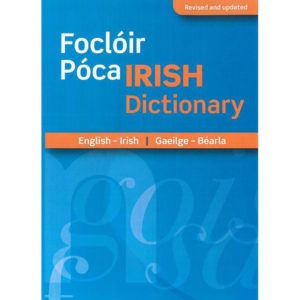Every cock crows boldly in his own farmyard.
Note: We have run into this notion of being bold in your own home before. It is a common proverb across Europe. For example, “Is ladarna coileach air ótrach fhéin.” — Scots Gaelic. “Every cock craws crousest on his ain midden.” — Scots. “Chein sur son fumier est gardi.” — French. “Cada gallo canta en su muladar.” — Spanish. “Een haan is stout op zijn eigen erf.” — Dutch. “Gallus in suo sterquilinio plurimum potest.” — Latin (Seneca). All of these would translate into English as, “A cock is bold on his own dunghill.”
Note also: Compare the Scots Gaelic (Gàidhlig) proverb to its Irish Gaelic (Gaeilge) equivalent.
Gàidlig: Is ladarna coileach air ótrach fhéin.
Gaeilge: Is dána coileach ar a atrainn fhéin.
The Scots adapted the Scots Gaelic word “ladarna” for bold or audiacious from the roman word “latro.” Another Scots Gaelic word for bold is ‘dána.’ The Irish Gaelic word ‘atrainn’ is an archaic dative form. Its standard nominative spelling is ‘otrann,’ which also means dungyard as well as farmyard. So you could substitute these words into these proverbs.
Gàidhlig: Is dána coileach air ótrach fhéin.
Gaeilge: Is dána coileach ar a otrann fhéin.
This illustrates that at one time these two Gaelic languages were the same language, with minor dialectical variations.
